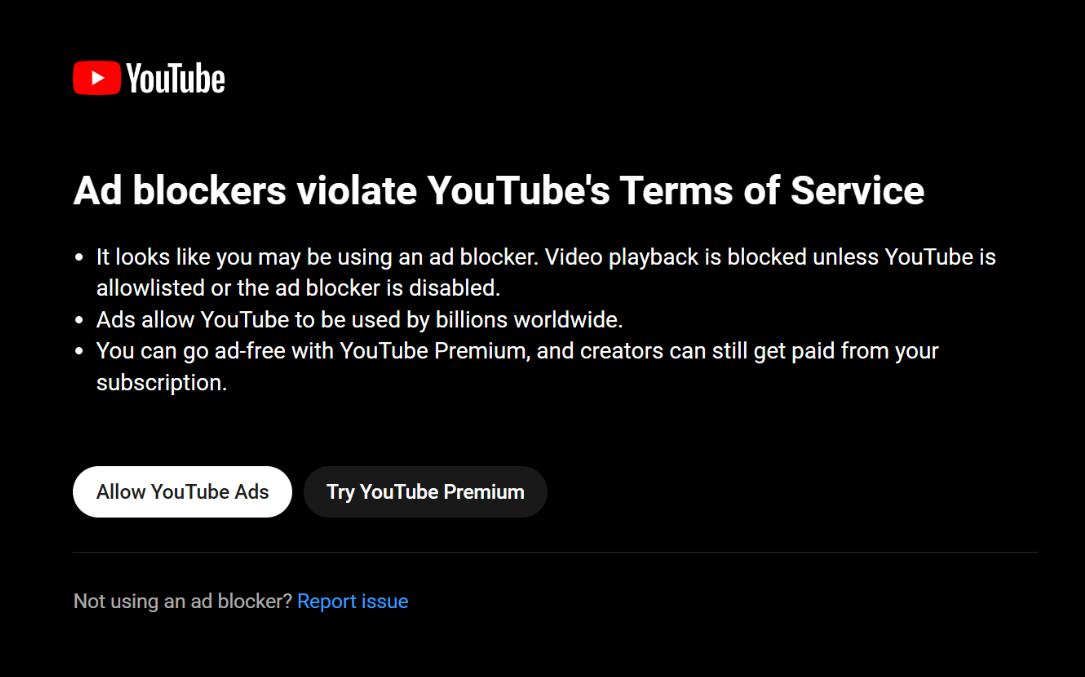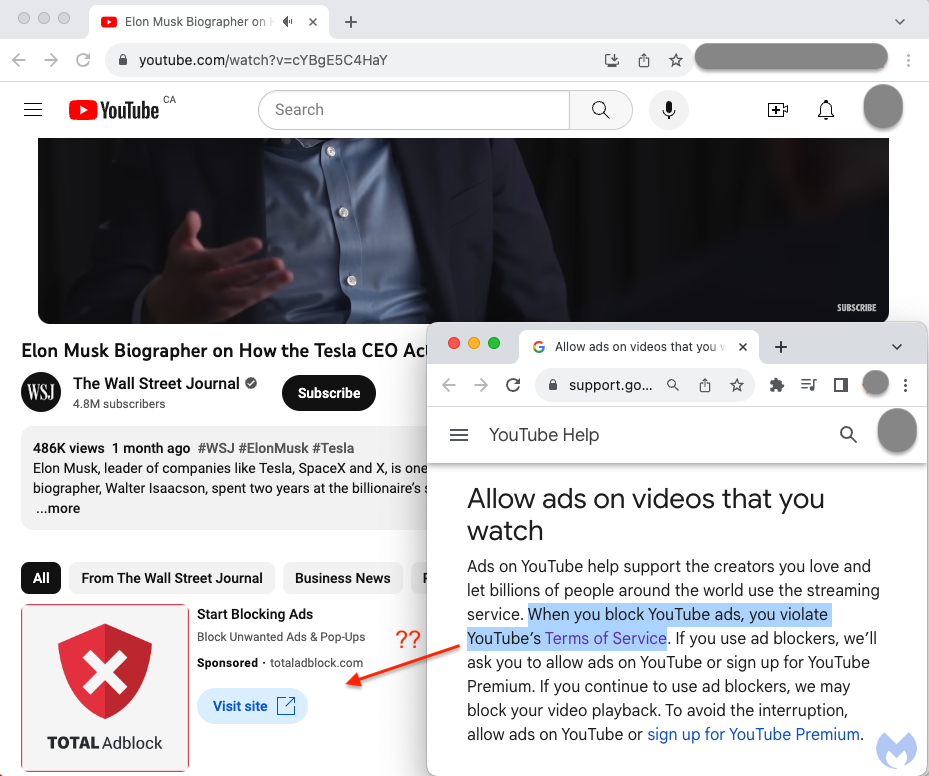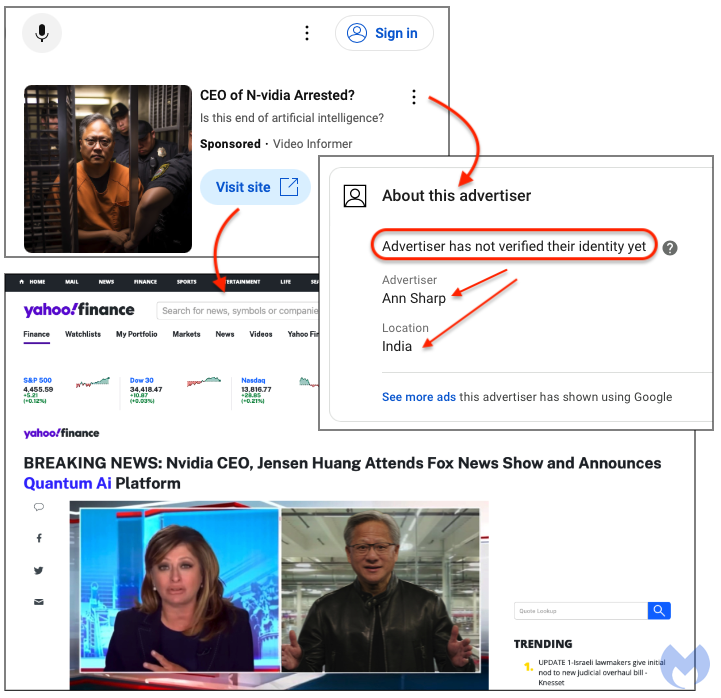
After performing local experiments for a few months, YouTube recently expanded its effort to block ad blockers. The move was immediately unpopular with some users, and raised some questions in Europe about whether it was breaking privacy laws.
In addition, there are some still some fundamental issues that have some people concerned. In this blog post, we look at a couple of examples that erode our trust in online ads. In fact, it’s not really an argument about free content, it’s about being able to consume content safely, and it seems as though we aren’t quite there yet.
Inconsistent and untrustworthy ads
YouTube has made it quite clear that using an ad blocker goes against its Terms of Service, reminding users that they have a choice between accepting ads or paying for a premium subscription.
Yet, as of November 9 2023, YouTube was still showing an ad for Total Adblock, a browser extension that blocks… ads. It certainly looks confusing and is sending mixed messages.

While there is some irony here, the greater concern is that perhaps YouTube doesn’t have a good handle on its ads and maybe that is why users have resorted to ad blockers in recent years.
It’s not that people want an ad-free experience to purposely hurt content creators. They more likely want a scam-free and malware-free experience but perhaps aren’t in a position to pay for a subscription.
While looking for evidence of scammy ads, it took us less than a minute to come across one of those infamous Quantum AI crypto scams:

The ad used typical click-bait tactics and redirected to a website that was obviously a scam. An unverified advertiser was allowed to serve this ad and expose users to a financial scam where they can lose hundreds or even thousands of dollars.
We have yet to see if YouTube will maintain its stance or take any actions to address those core issues. In the meantime, Malwarebytes continues to protect users from scams and malware, from whichever website they choose to visit. The Malwarebytes Browser Guard extension is the easiest way to block malicious ads and other web threats.